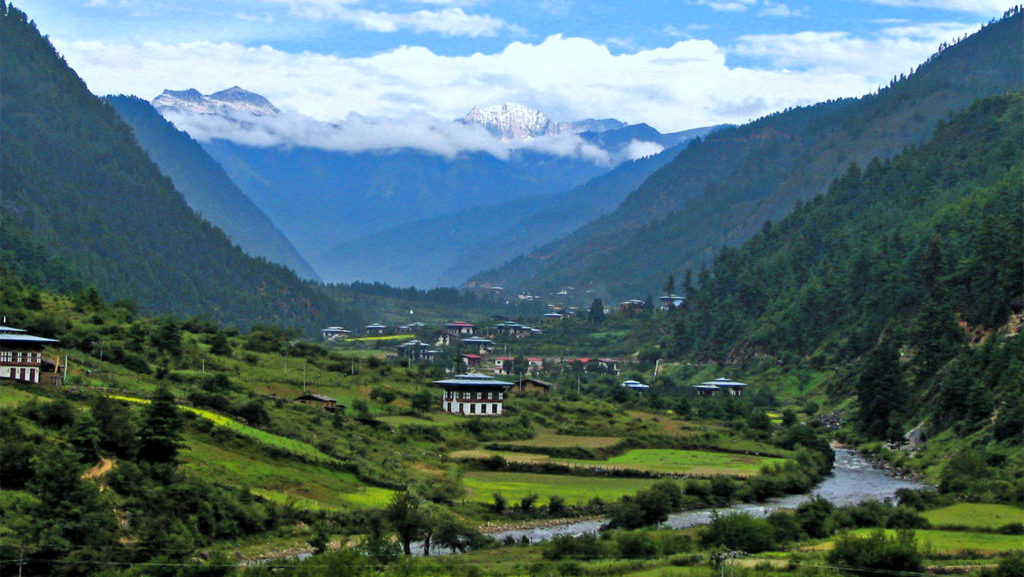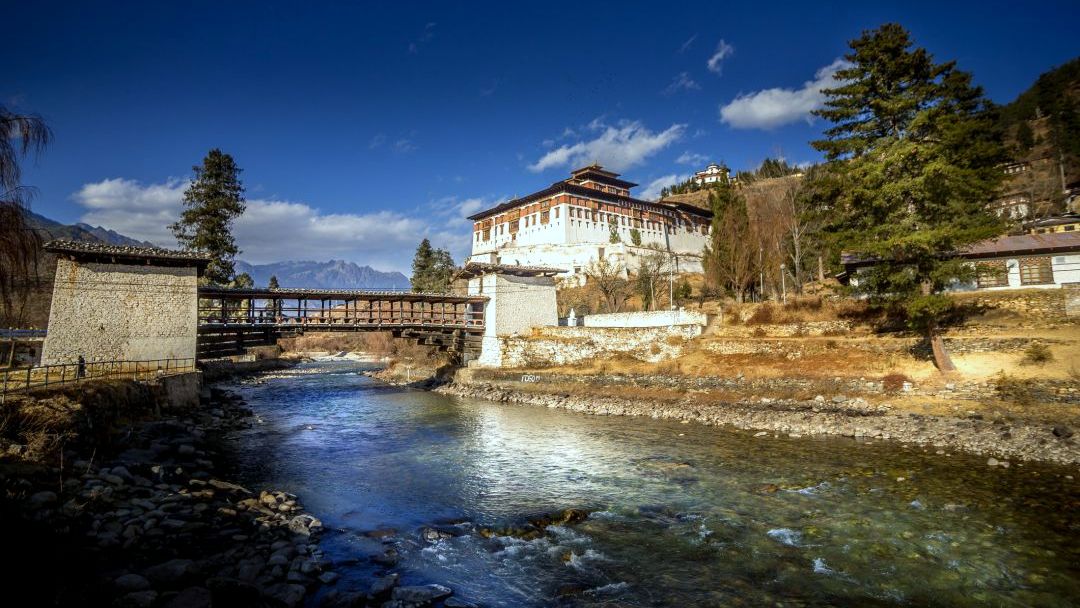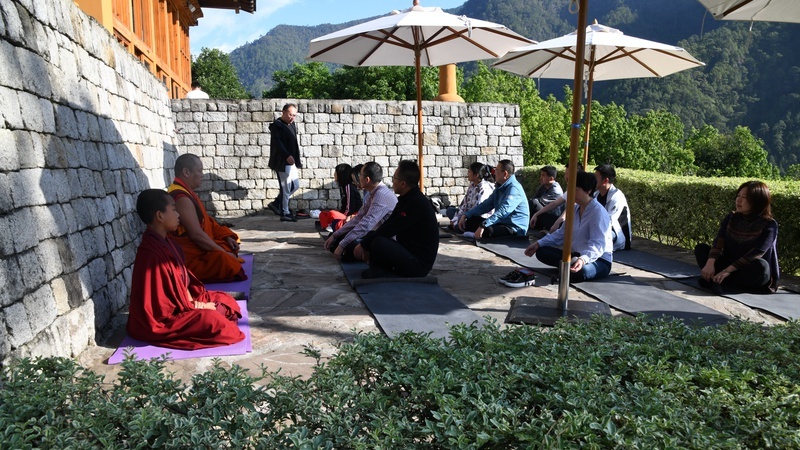Embarking on a journey to Bhutan, a mystical kingdom hidden within the majestic Himalayas, often brings up the inquiry: Is Bhutan worth visiting? With its unmatched combination of tranquil scenery, rich cultural heritage, and deep spiritual values, Bhutan provides a distinctive travel experience. The country's unique approach to tourism, focusing on sustainability and cultural integrity, not only enhances the visitor's journey but also upholds the nation's philosophy of Gross National Happiness. From the iconic Tiger's Nest Monastery to the lively Bhutanese festivals, and the pristine natural landscapes perfect for trekking, Bhutan beckons with myriad opportunities for discovery and enchantment. With careful preparation, including understanding Bhutan's visa requirements and acquainting oneself with the local culture and etiquette, your visit promises to be a meaningful exploration into the essence of Bhutan. This small kingdom, known as the Land of the Thunder Dragon, is celebrated not only for its stunning vistas but also for its deep-seated commitment to preserving its cultural and environmental legacy, making it a truly unparalleled destination. Let's delve into what makes Bhutan a destination unlike any other, which might help you decide.
Unique Tourism Model
Bhutan's approach to tourism is distinctive and serves as a model for sustainable travel worldwide. Here are the key points that outline Bhutan's unique tourism model:
- High Value, Low Impact: Bhutan prioritizes quality over quantity, aiming to attract discerning travelers who appreciate the nation's culture and natural beauty, while minimizing the environmental and cultural footprint of tourism.
- Minimum Daily Package: All tourists (except for nationals from India, Bangladesh, and the Maldives) are required to pay a minimum daily fee. This fee covers accommodation, food, transportation, and a licensed Bhutanese guide, ensuring a high-quality, all-inclusive travel experience.
- Sustainable Development: The revenue generated from tourism supports Bhutan's development projects, including healthcare, education, and infrastructure, as well as conservation efforts to protect the country's natural environment.
- Cultural Preservation: The tourism model emphasizes the importance of preserving Bhutan's rich cultural heritage, including its traditions, festivals, and architectural styles, offering visitors an authentic experience.
- Regulated Visitor Numbers: By controlling the number of tourists through the minimum daily package requirement, Bhutan manages visitor numbers to avoid overcrowding and the degradation of natural and cultural sites.
- Contribution to Gross National Happiness: Tourism in Bhutan is aligned with the country's philosophy of Gross National Happiness, which prioritizes the well-being of its citizens, sustainable development, environmental conservation, and cultural preservation over mere economic growth.
- Environmental Conservation: A significant portion of the daily fee goes towards environmental conservation efforts, maintaining Bhutan's commitment to being a carbon-negative country and preserving its diverse ecosystems.
- Personalized Service and Experiences: The requirement to travel with a licensed Bhutanese tour operator ensures that visitors receive personalized attention and gain deeper insights into Bhutanese life, culture, and landscapes.
This unique approach not only safeguards Bhutan's heritage and natural beauty but also offers a model for other countries looking to promote sustainable and responsible tourism.
Majestic Natural Beauty

Bhutan, often referred to as the Last Shangri-La, is a testament to the majestic natural beauty that our planet has to offer. Nestled in the Eastern Himalayas, this kingdom boasts landscapes that are both diverse and pristine, making it a haven for nature lovers and adventurers alike. Here’s a glimpse into the majestic natural beauty that Bhutan holds:
- Dramatic Mountain Ranges: Home to some of the highest unclimbed mountains in the world, Bhutan offers breathtaking views of snow-capped peaks and rugged terrains that awe and inspire.
- Verdant Valleys: The country's valleys, such as Paro, Thimphu, and Punakha, are incredibly lush, with rivers meandering through and traditional farmhouses dotting the landscape. These valleys are not only visually stunning but also rich in agricultural bounty.
- Ancient Forests: Over 70% of Bhutan is covered in forest, making it a true haven for biodiversity. These ancient woodlands are home to an array of flora and fauna, some of which are unique to the region.
- Crystal-clear Rivers and Lakes: Bhutan's rivers, fed by Himalayan glaciers, and its serene high-altitude lakes, such as the sacred Guru Dongmar and Phobjikha Valley’s wetlands, are sights of unparalleled beauty, offering tranquil retreats and opportunities for adventure sports.
- Rich Biodiversity: The conservation efforts have ensured that Bhutan is a sanctuary for wildlife, including rare and endangered species like the snow leopard, Bengal tiger, and the takin, Bhutan's national animal.
- Elevated Walkways and Trekking Paths: The country’s commitment to preserving its natural environment means that many areas are accessible only by foot. Trekking in Bhutan opens up a world of breathtaking vistas, remote monasteries, and villages untouched by time.
- Seasonal Spectacles: From the vibrant blooms of rhododendrons in spring to the clear, crisp views of the Himalayas in fall, each season brings its own unique beauty to Bhutan's landscapes.
Bhutan's majestic natural beauty is not just a feast for the eyes but also a balm for the soul, offering peace, tranquility, and a deep connection with nature. It’s this untouched and well-preserved environment that makes Bhutan a truly special place on Earth.
Rich Cultural Heritage

Bhutan's rich cultural heritage is a vivid tapestry woven from its deep-rooted traditions, spiritual beliefs, and colorful festivals, making it a unique and captivating destination for those seeking to immerse themselves in a deeply preserved culture. Here's a look into the elements that contribute to the kingdom's cultural wealth:
- Dzongs and Monasteries: These fortress-like structures are not just architectural marvels but also serve as the spiritual, administrative, and social centers of their regions. Dzongs like Punakha Dzong and Paro Dzong are exquisite examples, featuring intricate woodwork, beautiful courtyards, and significant religious relics.
- Buddhist Traditions: Buddhism is the heart and soul of Bhutanese culture, influencing its arts, ceremonies, and daily life. The reverence for all living beings and the emphasis on compassion and mindfulness are manifest in the country's ethos and policies, including the concept of Gross National Happiness.
- Festivals (Tshechus): Bhutanese festivals are vibrant, colorful events that bring communities together to celebrate their heritage. Tshechus, held in honor of Guru Rinpoche who brought Buddhism to Bhutan, feature mask dances, music, and storytelling, offering insights into Bhutanese mythology and moral teachings.
- Traditional Arts and Crafts: Known as the Zorig Chusum, the thirteen traditional arts and crafts of Bhutan include weaving, painting, wood carving, and sculpture. These crafts are highly valued and passed down through generations, evident in the textiles, religious thangkas, and buildings throughout the country.
- National Dress: The Bhutanese national dress, the gho for men and the kira for women, is worn with pride and is a significant aspect of Bhutanese identity. This attire is not only a cultural mandate but also a symbol of the country's sovereignty and rich heritage.
- Language and Literature: Dzongkha, the national language, and the body of Buddhist literature, including ancient texts and scriptures, play a crucial role in preserving Bhutan's cultural and spiritual legacy.
- Customs and Etiquette: Bhutanese culture is deeply respectful, with customs and etiquette that reflect the Buddhist principles of kindness and respect for others. From traditional greetings to dining etiquette, these practices are integral to Bhutanese identity.
- Sustainable Living Practices: Rooted in the Buddhist respect for nature, Bhutan's culture promotes sustainable living and environmental stewardship, making it the world's only carbon-negative country.
Bhutan's rich cultural heritage, sustained through centuries of isolation and careful preservation, offers a window into a way of life where tradition and spirituality deeply influence the present, making every visit a profound and educational experience.
Adventure and Trekking

Bhutan, with its pristine environment and breathtaking landscapes, is a paradise for adventurers and trekking enthusiasts. The kingdom offers a diverse array of trekking experiences, from challenging mountain treks to serene walks through lush valleys and ancient forests. Here’s why adventure and trekking in Bhutan are experiences not to be missed:
- Diverse Terrain: Bhutan’s varied terrain, ranging from subtropical plains in the south to high Himalayan peaks in the north, provides trekkers with a wide range of experiences. Whether you’re looking for a challenging high-altitude trek or a leisurely walk through beautiful landscapes, Bhutan has something for every level of trekker.
- Iconic Treks: The Snowman Trek is often cited as one of the world’s toughest treks, taking adventurers through some of the most remote and stunning areas of the Himalayas. Meanwhile, the Jomolhari Trek offers breathtaking views of Mount Jomolhari, Bhutan’s most sacred peak, while the Druk Path Trek features beautiful lakes, forests, and a glimpse into the rural life of Bhutanese villages.
- Pristine Nature: With a commitment to maintaining a minimum of 60% forest cover, Bhutan’s trails are set in some of the most unspoiled natural environments in the world. Trekkers can enjoy clean air, crystal-clear streams, and forests that are alive with birdsong and the sounds of nature.
- Rich Biodiversity: Trekking in Bhutan also offers the chance to see a variety of flora and fauna, some of which are unique to the Himalayan region. The country’s protected areas are home to snow leopards, takins, black bears, and numerous bird species, making each trek a wildlife watching adventure.
- Cultural Insights: Unlike trekking in more commercialized destinations, trekking in Bhutan often includes visits to remote monasteries, temples, and traditional Bhutanese villages. This offers trekkers a unique insight into the local culture and way of life, adding a rich cultural dimension to the adventure experience.
- Sustainable Trekking: Bhutan’s approach to tourism and trekking emphasizes sustainability and respect for nature. Treks are designed to minimize environmental impact and support local communities, aligning with the country’s broader commitment to conservation and sustainable development.
- Professional Support: Trekking in Bhutan is facilitated by professional guides and tour operators who ensure safety, provide cultural insights, and take care of all logistical details. This professional support allows trekkers to fully immerse themselves in the experience without worrying about the practicalities.
Adventure and trekking in Bhutan are not just about physical challenge and natural beauty; they are immersive experiences that encompass cultural discovery, environmental appreciation, and personal growth. Bhutan’s commitment to preservation and sustainability ensures that these adventures remain authentic and enriching for all who undertake them.
Sustainable and Responsible Travel
Sustainable and responsible travel in Bhutan is a core principle that aligns with the kingdom's wider philosophy of Gross National Happiness, which places equal importance on economic development, cultural preservation, environmental sustainability, and good governance. Bhutan's unique approach to tourism, emphasizing low impact and high value, showcases its commitment to sustainability and offers a model for responsible travel practices worldwide. Here’s how Bhutan promotes sustainable and responsible travel:
- Controlled Tourism Through Minimum Daily Fee: Bhutan controls the number of tourists by imposing a minimum daily fee for all visitors. This fee ensures that tourism remains sustainable, covering expenses related to accommodation, transportation, and a licensed guide, and also contributes to conservation efforts and community welfare.
- Environmental Conservation: A significant portion of the daily tariff paid by tourists goes directly towards environmental conservation projects. Bhutan has committed to remaining carbon neutral and currently stands as the world's only carbon-negative country, absorbing more carbon than it emits.
- Preservation of Cultural Heritage: The revenue from tourism also supports the preservation of Bhutan's rich cultural heritage, including its historic dzongs, monasteries, and traditional festivals. This approach ensures that visitors contribute to the protection and continuation of Bhutanese traditions.
- Promotion of Local Well-being: Sustainable travel practices in Bhutan are designed to ensure that tourism benefits local communities. This includes employing local guides, staying in locally-owned accommodations, and buying locally-made products, which helps to distribute tourism income more evenly.
- Eco-Friendly Practices: Travelers to Bhutan are encouraged to adopt eco-friendly practices, such as minimizing plastic waste, respecting wildlife and natural habitats, and following established trails during treks and hikes to reduce environmental impact.
- Education and Awareness: Bhutan emphasizes the importance of educating tourists on local customs, traditions, and environmental conservation efforts. This awareness encourages respectful behavior and a deeper understanding of the significance of preserving Bhutan’s natural and cultural assets.
- Sustainable Infrastructure Development: The country invests in sustainable infrastructure to support tourism, including eco-friendly hotels and renewable energy sources, ensuring that development does not come at the expense of the environment.
- Community Engagement: Sustainable tourism initiatives often involve direct community engagement, allowing visitors to participate in local life through homestays, cultural programs, and community-led conservation projects. This engagement fosters a greater appreciation and respect for Bhutan’s culture and environment among travelers.
Bhutan's approach to sustainable and responsible travel not only enhances the visitor experience but also ensures that the beauty, biodiversity, and cultural integrity of the kingdom are preserved for future generations. It stands as a beacon for how countries can welcome tourists while maintaining their commitment to conservation and cultural preservation.
Exclusive Culinary Experiences

Bhutan's cuisine is a hidden gem that offers exclusive culinary experiences to those who venture into this Himalayan kingdom. With its unique flavors, ingredients, and cooking methods, Bhutanese cuisine reflects the country's rich cultural heritage and its people's deep connection with nature. Here are some aspects of Bhutan's culinary landscape that make it an exclusive and unforgettable part of visiting the country:
- Unique Flavors and Ingredients: Bhutanese cuisine is known for its use of unique ingredients and bold flavors. The iconic dish, Ema Datshi, made with spicy chilies and local cheese, is a testament to the Bhutanese love for heat in their food. Ingredients like wild mushrooms, ferns, and red rice add distinctive flavors and textures that are hard to find elsewhere.
- Farm-to-Table Dining: Bhutan's agricultural practices are largely organic, and its cuisine benefits from the freshness of locally sourced ingredients. Meals often feature a variety of seasonal vegetables, dairy products from yaks and cows, and red rice, providing a farm-to-table experience that emphasizes the natural taste of the ingredients.
- Traditional Cooking Methods: The traditional methods of cooking, such as using earthenware pots and wood-fired stoves, impart a unique flavor to Bhutanese dishes. These age-old techniques are a key part of the culinary experience, connecting diners with the country's history and traditions.
- Spiritual and Cultural Significance: Food in Bhutan carries significant spiritual and cultural meanings. For instance, the preparation and consumption of Zow Shungo, a dish made from leftover vegetables and rice, reflect the Bhutanese values of simplicity and sustainability. Ceremonial dishes and traditional beverages like Ara, a distilled alcoholic drink, play important roles in local festivals and celebrations.
- Exclusive Culinary Tours: Specialized culinary tours offer visitors an in-depth exploration of Bhutan's food culture, including cooking classes with local chefs, visits to farmers' markets, and meals in traditional Bhutanese homes. These experiences provide a deeper understanding of the cuisine and the opportunity to learn how to prepare authentic Bhutanese dishes.
- Vegetarian Friendly: Given the Buddhist ethos of non-harm, vegetarianism is widespread in Bhutan, making it a haven for vegetarian travelers. Many dishes are vegetable-centric and offer a variety of flavors that cater to vegetarian and vegan diets.
- Innovative Fusion Cuisine: Some Bhutanese chefs are creatively blending traditional Bhutanese elements with modern culinary techniques, introducing a contemporary twist to the nation's cuisine. This innovation leads to unique dishes that maintain the essence of Bhutanese flavors while appealing to global palates.
The exclusive culinary experiences in Bhutan are not just about enjoying delicious food; they are a gateway to understanding the country's culture, traditions, and way of life. Through its distinctive cuisine, Bhutan offers a taste of its rich cultural heritage and its commitment to sustainability and harmony with nature.
A Perfect Haven for Meditation and Wellness Retreats

Bhutan, with its serene landscapes, spiritual ambiance, and rich Buddhist heritage, emerges as a perfect haven for meditation and wellness retreats. Nestled among the majestic Himalayas, this tranquil kingdom offers an ideal setting for those seeking peace, self-discovery, and a deeper connection with nature and spirituality. Here’s why Bhutan stands out as a sanctuary for meditation and wellness:
- Natural Serenity: Bhutan's pristine natural environment, from lush valleys and dense forests to tranquil lakes and soaring mountains, provides a backdrop that naturally induces calm and introspection. The purity of the air and the peacefulness of the surroundings support mindfulness practices and contribute to overall well-being.
- Spiritual Heritage: As a deeply spiritual country where Buddhism is a way of life, Bhutan imbues visitors with a sense of peace and spiritual well-being. The numerous monasteries, stupas, and prayer flags that dot the landscape are constant reminders of the Buddhist teachings of compassion, mindfulness, and detachment.
- Traditional Wellness Practices: Bhutanese traditional medicine, known as Sowa Rigpa, is based on natural healing practices that have been passed down through generations. Wellness retreats in Bhutan often incorporate these holistic healing practices, including herbal treatments, massages, and hot stone baths, offering a unique approach to health and well-being.
- Meditation Retreats: The country hosts several meditation and retreat centers, often located in serene settings such as monasteries perched on mountaintops or secluded valleys. These retreats offer guided meditation sessions, teachings on Buddhist philosophy, and the opportunity to live in simplicity and silence, facilitating deep inner transformation.
- Yoga and Mindfulness Programs: Alongside meditation, many retreats in Bhutan offer yoga and mindfulness programs that cater to both beginners and experienced practitioners. These programs are designed to harmonize the body, mind, and spirit, utilizing Bhutan's tranquil environment to enhance the practice.
- Community and Cultural Immersion: Wellness retreats in Bhutan also provide opportunities for cultural immersion and engagement with local communities. Participating in local traditions, ceremonies, and daily life adds an enriching dimension to the wellness experience, fostering a sense of connection and belonging.
- Digital Detox: The remoteness of Bhutan and its emphasis on preserving its natural and cultural heritage make it an ideal place for a digital detox. Disconnecting from digital devices and reconnecting with nature and oneself is a key aspect of the wellness experience in Bhutan.
- Personal Growth and Reflection: The combination of Bhutan's natural beauty, spiritual ambiance, and traditional wellness practices creates a conducive environment for personal growth and reflection. Visitors often leave with a renewed sense of purpose, clarity, and well-being.
Bhutan’s approach to wellness is deeply integrated with its environment, culture, and spiritual practices, making it a unique destination for those seeking to rejuvenate their mind, body, and spirit. In this Himalayan kingdom, meditation and wellness retreats offer more than just relaxation; they offer a pathway to transformation and enlightenment.
Visiting Bhutan is undoubtedly worth it for those seeking an authentic, sustainable, and spiritually enriching travel experience. With its unique tourism model, majestic natural beauty, rich cultural heritage, and commitment to environmental conservation and Gross National Happiness, Bhutan offers a journey that goes beyond mere sightseeing to provide deep personal growth and meaningful connections. This Himalayan kingdom invites you to explore its serene landscapes, engage in its vibrant culture, and embrace its philosophy of living in harmony with nature and oneself.
FAQs for "Is It Worth It Visiting Bhutan?"
Q: What makes Bhutan unique as a travel destination?
A: Bhutan is unique for its unique tourism model, majestic natural beauty, deep-rooted Buddhist culture, and its commitment to Gross National Happiness. It offers an authentic blend of adventure, spirituality, and tranquility, making it a truly unique travel destination.
Q: How does Bhutan's tourism policy affect visitors?
A: Bhutan’s “High Value, Low Impact” tourism policy ensures sustainability through a minimum daily fee covering accommodation, meals, transportation, and a licensed guide. This approach preserves Bhutan’s culture and environment while ensuring a comprehensive and quality experience for visitors.
Q: What is the best time to visit Bhutan?
A: The best times to visit are during the spring (March to May) and fall (September to November) for pleasant weather and clear views of the Himalayas. These seasons also align with many vibrant local festivals.
Q: Are there any specific visa requirements for Bhutan?
A: All international tourists (except citizens of India, Bangladesh, and the Maldives) need to obtain a visa arranged by a Bhutanese tour operator, including the minimum daily package fee, ensuring a seamless entry into Bhutan.
Q: Can I travel independently in Bhutan?
A: Independent travel is not permitted for international tourists in Bhutan. Visitors must book through a licensed Bhutanese tour operator for a personalized and hassle-free experience, including itinerary planning, accommodation, transport, and guided services.
Q: What are some must-visit places in Bhutan?
A: Essential destinations include the Tiger's Nest Monastery, Punakha Dzong, the Buddha Dordenma Statue, and the Phobjikha Valley. These places offer a glimpse into Bhutan’s spiritual essence, architectural marvels, and natural wonders.
Q: Is Bhutan suitable for adventure seekers?
A: Yes, Bhutan is ideal for adventure enthusiasts, with activities like trekking, mountain biking, rafting, and archery. Its diverse landscapes and pristine nature cater to a wide range of outdoor adventures.
Q: What should I know about Bhutanese culture and etiquette?
A: It's important to dress modestly, especially at religious sites, remove shoes before entering temples, and seek permission before photographing people or religious icons. Respecting Bhutanese traditions and etiquette is crucial for a respectful visit.
Q: How does Bhutan contribute to sustainable travel?
A: Bhutan's sustainable travel contributions include its tourism policy, carbon neutrality, promotion of traditional crafts, and conservation efforts, showcasing its role as a model for sustainable and responsible tourism.
Q: What culinary experiences should I not miss in Bhutan?
A: Don’t miss trying Ema Datshi, Red Rice, Momos, and Butter Tea. Bhutanese cuisine’s use of bold flavors and fresh, organic ingredients offers a unique and delightful gastronomic journey.
If you are looking for tour packages in Bhutan please click here
If you need any further information, please contact us, Email: at [email protected] , Phone (Whatsapp or Viber) +975-1755-6636
